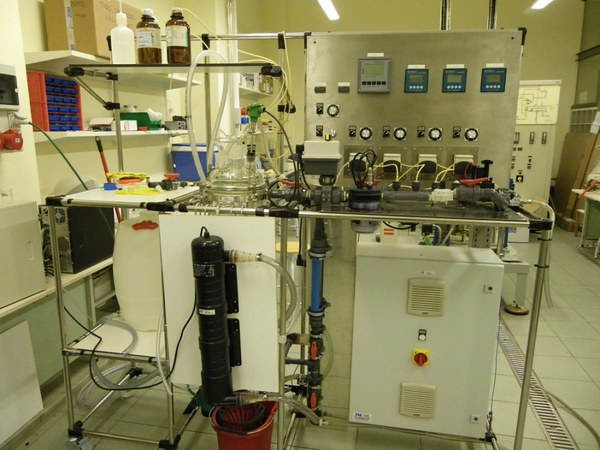WAPO
ADVANCED OXIDATION PROCESSES APPLIED TO WATER TREATMENT
The increase in public consciousness for the necessity of environmental protection and a careful use (and re-use) of natural resources has made a key factor the management and control of waste waters containing non-biodegradable organic compounds.
Advanced Oxidation Processes (AOPs) have been proposed as alternative or complementary techniques applied in cases where biotechnological methods are ineffective.
Costs of hydroxyl radical generation are quite high, and therefore AOPs cannot be applied to large flows of waste water. In general, preference should be given to methods that combine high rates of radical generation with the potential of treating limited flows of rather high pollutant concentration. Ideally, industrial waste waters of known sources may be abioticaly pre-treated to transform biorefractory and/or biocidal components into biodegradable waste or to reduce the content of dissolved organic carbon (DOC) to the capacity of the down-hill biological treatment station. Elimination of highly biocidal medical waste and related xenobiotics found at very low but nevertheless consequential concentrations in drinking water resources is becoming a major topic of research and development.
The group focus the study in the large scale degradation of organic waste which has became an attractive topic of research and development about two decades ago. Our 12 L pilot plant could measure online the key parameters of the system and react, following previous programmed models, modifying the process conditions in order to increase the efficiency of the treatment. The flexibility of the plant (several operating conditions) allows studying and combining several AOPs as:
- Photolysis
- Fenton
- Photofenton
- Photocatalysis
- H2O2/UV
And also the possibility of monitoring and automatizing helps in the search of the lower-cost operating settings. The aim of the treatment and finally economic data decide on the choice of the AOP to be used.
 |  |
|---|
Share: